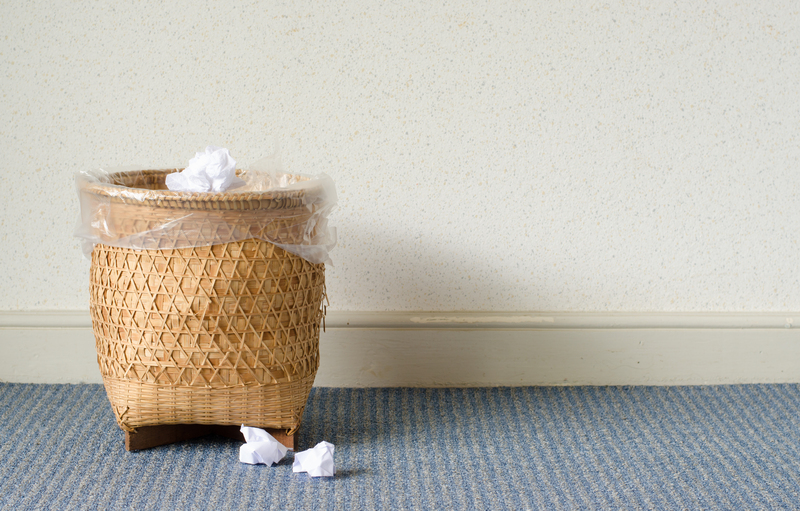Make Bulky Waste Disposal Cheaper and Easier: Smart Solutions for Households and Businesses
Bulky waste disposal has become a pressing problem as our homes and offices accumulate large, unwanted items. Whether you are clearing out old furniture, renovating, or just getting rid of a mountain of clutter, you may find the process confusing, expensive, and environmentally concerning. However, with some planning and the right tips, you can make bulky waste disposal cheaper and easier than ever. In this comprehensive guide, we cover practical strategies, useful resources, and sustainable alternatives to ensure your large-item waste is disposed of responsibly and economically.
Understanding Bulky Waste: What Qualifies?
Bulky waste refers to large items that cannot be easily disposed of via normal household waste streams. Common examples include:
- Old furniture: beds, sofas, wardrobes, cabinets
- Large appliances: fridges, washing machines, ovens
- Mattresses
- Garden waste: tree branches, old fencing, sheds
- Renovation material: carpets, sinks, bathtubs
- Large toys: outdoor playsets, bicycles
Many local councils and private services offer bulky waste collection programs, but these often come with costs and restrictions.

Why Is Bulky Waste Disposal Expensive?
Disposing of large items can be costly due to several factors:
- Transportation costs for large or heavy items
- Tipping or landfill fees charged by waste facilities
- Manual labor required for collection and sorting
- Environmental processing for electronics and hazardous components
- Limited disposal dates or infrequent collection in some areas
As a result, many people end up paying more than necessary or, worse, disposing of items illegally.
How to Make Bulky Waste Disposal Cheaper and Easier
Now let's explore effective strategies to manage bulky waste affordably, reduce hassle, and even help the environment.
1. Plan Ahead and Sort Items
The first step to cost-effective bulky waste removal is organisation. Plan your clean-out in advance and divide items into categories:
- Donate or sell (still-usable items)
- Recycle (appliances, metals, wood)
- Dispose (damaged, non-recyclable)
By sorting bulky waste, you can avoid unnecessary landfill fees and may even make some money back!
2. Use Free or Low-Cost Collection Services
Many councils or municipalities offer free bulky waste pickups once or twice a year. To make the most of these:
- Book well in advance as slots fill up quickly
- Maximize the amount you put out following collection rules
- Ask neighbors to share the service and split costs for extra items
If your local authority doesn't provide this, check local charities or community clean-up days which often offer cheap and easy bulky waste collection.
3. Sell or Donate Reusable Items
Make bulky waste disposal more affordable by getting rid of items via:
- Online marketplaces (Facebook Marketplace, Craigslist, Gumtree)
- Donation centers (charity shops, second-hand stores, shelters)
- Giveaway groups or local community boards
Many organizations will collect large items free of charge, saving you time and money while reducing landfill waste.
4. Hire a Skip Bag or Mini-Skip
Traditional skips can be expensive, but skip bags or mini-skips are affordable alternatives for smaller volumes of bulky waste. Benefits include:
- Flat-rate pricing
- Flexibility: fill it in your own time, then call for pick-up
- Lower environmental impact when properly sorted
Compare providers for the best deals, and look for eco-friendly skip services that recycle contents.
5. Use Community Recycling Centers
Most towns have household waste recycling centres (HWRCs) or council tips which accept large items. Tips for using these facilities:
- Check their websites for accepted items and opening hours
- Sort your waste to access free or discounted disposal
- Borrow or hire a van if your load is too large for a car
Some centers partner with charities, making the process even more sustainable.
6. Arrange a Group Collection
Bulk rates are often cheaper. Team up with neighbors or co-workers to:
- Hire a junk removal service and split the cost
- Rent a shared skip for whole streets or apartment blocks
- Coordinate with a local hauler for repeat collections
This method offers convenience and saves all participants money.
7. DIY Disposal with Borrowed Vehicles
If you have driver access, consider:
- Borrowing a van or trailer from a friend
- Using car-sharing apps that offer large vehicles
- Packing your car securely for multiple recycling center trips
This approach is often much cheaper for bulky item disposal versus commercial collection, especially if you only have a few pieces to dispose of.
8. Leverage Repair and Upcycling Workshops
Some items can be saved from disposal:
- Furniture repair workshops often take broken chairs, sofas, and beds to restore
- Community upcycling groups may collect old wood, metal, and fixtures
- Online DIY and maker groups sometimes exchange or transform bulky waste into something new
By repairing or repurposing items, you keep costs down and reduce environmental impact.
Local Council vs. Private Bulky Waste Collection: Cost Comparison
Let's look at the general differences between local council bulky waste services and private removal companies:
| Service Type | Cost | Availability | Pros | Cons |
|---|---|---|---|---|
| Council Collection | Often low (?0-?60 per load) | Limited days/times, booking needed | Reliable, regulated, eco-friendly | Few items allowed, slow, strict rules |
| Private Company | Varies (?40-?150+ per load) | Flexible, fast response | Convenient, collects almost anything | Higher prices, quality varies |
Tip: Always check for licenses and recycling policies with any provider before booking!
What NOT to Do: Avoid These Bulky Waste Mistakes
To make bulky waste disposal easier and cheaper, beware of the following pitfalls:
- Don't use unregulated "man with a van" services, as fly-tipping fines can fall on you
- Do not dump waste in unauthorized locations--penalties are severe
- Avoid mixing hazardous waste (like paint, chemicals, or electronics) in regular skips
- Never burn bulky waste, which is illegal and polluting
Sustainability Tips: Environmentally Friendly Bulky Waste Solutions
While cost is important, responsible bulky waste management helps preserve our environment. Here's how to make bulky waste disposal eco-friendly and easy:
- Recycle wherever possible--appliances, metals, wood, and textiles can often be processed for reuse
- Buy less, choose quality--invest in durable goods to reduce future bulky waste
- Participate in circular economy--use sharing platforms or buy second-hand
- Support local charities by donating unwanted but usable items
Following these steps helps reduce landfill contributions and benefits your community.

Bulky Waste Disposal: FAQs
- Q: What's the cheapest way to get rid of bulky items?
A: Use free council or charity pickups, donate/sell items online, or take them to local recycling centers yourself. - Q: Do I need to pay for bulky waste collection?
A: Some councils collect for free, some charge a nominal fee, while private services always charge. - Q: Can I leave bulky waste on the kerb?
A: Only on appointed days or when a collection is booked. Otherwise, it may be considered illegal dumping. - Q: Are all items accepted by recycling centers?
A: No. Check accepted items lists online before your visit. - Q: How can I prove my items were disposed of legally?
A: Keep receipts or confirmation forms, especially if using a waste carrier.
Conclusion: Making Bulky Waste Disposal Cheaper, Easier, and Greener
Dealing with unwanted large items doesn't have to be stressful or expensive. By combining practical strategies--like sorting, donating, recycling, sharing costs, and planning ahead--you can make bulky waste disposal easy and affordable. Remember to consider sustainability wherever possible, always use reputable services, and check local options for free or low-cost solutions. With a little preparation, you'll save money, save time, and keep your conscience (and planet) clean.
Start your hassle-free bulky waste clean-up today by exploring your local council's collection programs, nearby charity shops, and eco-friendly disposal companies!
```